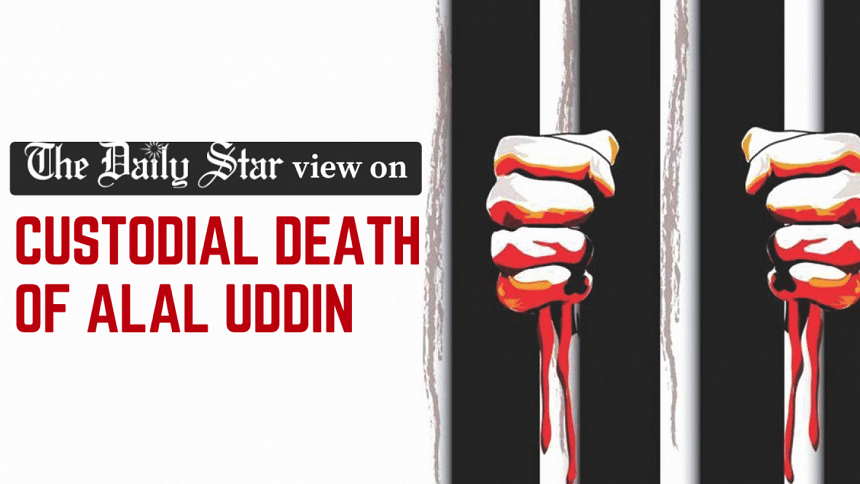Investigate Alal’s custodial death

We are appalled at the news of yet another death in police custody. Like most other custodial deaths, this time, too, the victim died in a hospital on Friday after he was arrested. Police detained 50-year-old Alal Uddin, a caretaker, in connection with a murder at the building where he worked. However, while his family says he was picked up by police on June 6, the latter claim they arrested Alal on June 10. According to Alal's family, he was in good health before being picked up – yet, within four days, he was taken first to an orthopaedic hospital, as ordered by the court, and then moved to a hospital for cardiovascular diseases, where he died soon after. Alal's body also bore marks of injury, as per his family.
By now, we know that there are too many unanswered questions in the version provided by police. We also know the familiar pattern of stories around custodial deaths. Just this March, 38-year-old Sultana Jasmine was declared dead 48 hours after she was arrested by the Rapid Action Battalion (Rab) on her way to work. The death certificate said she had died of a severe brain haemorrhage, and media reports stated that she had a head injury.
After the US sanctions on Rab, the number of extrajudicial killings and enforced disappearances dropped dramatically, according to human rights organisations. But unfortunately, custodial torture and deaths still take place every now and then. The reason? Members of law enforcement agencies hardly ever get punished for these crimes, leading to a sense of impunity among them. Despite laws and High Court directives, prohibiting any kind of torture and with clear guidelines regarding how arrestees should be treated, these barbaric practices continue.
The solution to this is clear. The government must investigate all custodial deaths – not by the force whose members are implicated in the deaths, but by an independent body to ensure the probe is unbiased and transparent. The government must also put a stop to the practice of people being picked up and shown arrested at a later date, as this allows for possible torture of detainees. We hope that the High Court's proactive role in demanding the probe report in Sultana Jasmine's case within 60 days, and asking the officials concerned to show causes as to why they should not take action against the Rab members involved, will be repeated in all other cases of custodial death, including Alal's. Custodial deaths go against our constitution, against international conventions and against democracy. They must end regardless of whether the US imposes sanctions or not.


 For all latest news, follow The Daily Star's Google News channel.
For all latest news, follow The Daily Star's Google News channel. 









Comments